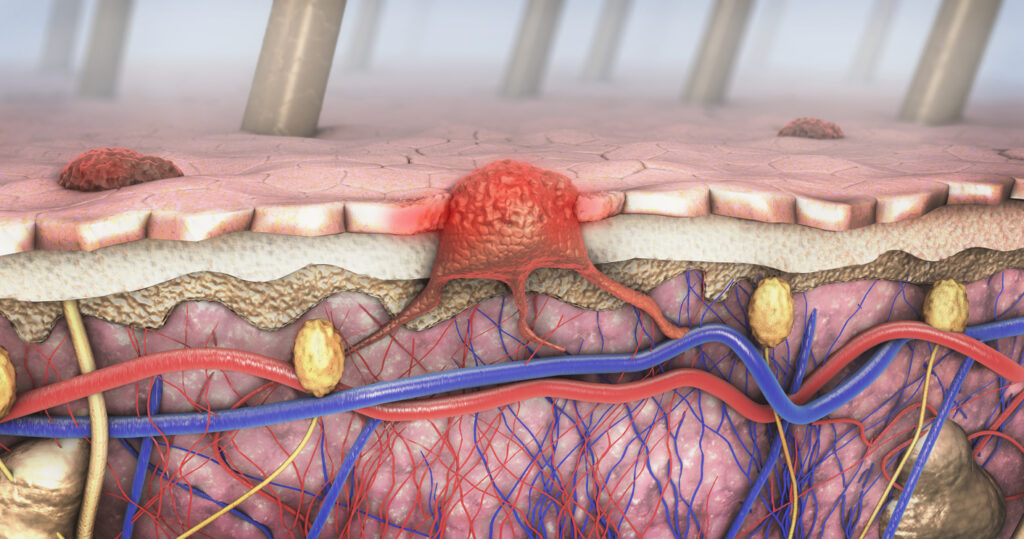An activity pattern of genes controlling the production of spleen tyrosine kinases may predict which melanoma patients are likely to have severe side effects from immunotherapy, a new study shows.
Led by researchers at NYU Langone Health and its Perlmutter Cancer Center
In the new study, which appears in Clinical Cancer Research , researchers found that even before treatment began in their test subjects, the activity of genes controlling the production of spleen tyrosine kinases predicted 83% of melanoma patients who eventually developed severe side effects from combined immunotherapy with nivolumab (Opdivo, Bristol-Myers Squibb Company) and ipilimumab (Yervoy, Bristol-Myers Squibb Company).
Moreover, the researchers found that this heightened gene signature, as evidenced by the production of spleen tyrosine kinases, or the SYK pathway, did not interfere with the effectiveness of therapies in preventing recurrence of melanoma. The impact was connected only to side effects.
“Our study results show that increased gene activity in the spleen tyrosine kinase pathway could be the basis of a possible blood test that identifies melanoma patients most susceptible to having severe side effects from immunotherapy, and well before they start treatment,” says study co-senior investigator Tomas Kirchhoff, PhD, an associate professor in the Department of Population Health at NYU Grossman School of Medicine and a member of Perlmutter Cancer Center in New York City, NY, in a news release.
“Predictive information of this kind is critically important to oncologists and patients to help guide their immunotherapy decisions, to either minimize these side effects by taking additional precautions or choose alternative immunotherapies,” adds study co-lead investigator Kelsey Monson, PhD.
For the study, researchers analyzed immune system cell samples from 212 men and women with melanoma participating in a national multicenter trial called CheckMate-915. The trial was designed to test whether combined therapy with nivolumab and ipilimumab worked better than single therapy with nivolumab in preventing postsurgical recurrence of melanoma. All immune cell samples were taken prior to the start of immunotherapy. Both drugs are manufactured by the pharmaceutical company Bristol Myers Squibb, which sponsored the CheckMate-915 trial, and provided the patient specimens and data used in the analysis.
When researchers looked at what genes were more active than others in patients who experienced side effects from their immunotherapy, they found a specific pattern among 24 genes tied to the production of spleen tyrosine kinases. Further statistical analyses showed that increased or decreased activity (transcription) of only five of these genes — CD22, PAG1, CD33, HNRNPU, and FCGR2C — along with age and stage severity of their melanoma served as the best predictors of who would experience immunotherapy side effects.
Study co-senior investigator Jeffrey Weber, MD, PhD, says that the SYK pathway has previously been linked to other autoimmune diseases, including lupus, rheumatoid arthritis, and colitis. He also points out that immunotherapy side effects were also most common in areas affected by these autoimmune diseases, including the skin, colon, and liver. Dr. Weber also serves as deputy director of NYU Langone’s Perlmutter Cancer Center.
The team next plans to investigate if an activated SYK pathway is predictive of side effects in patients treated with ipilimumab alone or with other combination immunotherapies.
“If our future research can explain how an activated spleen tyrosine kinase pathway leads to increased risk of side effects from immunotherapy, then it could also potentially help us to design better cancer immunotherapies and potentially other treatments for autoimmune diseases,” adds Kirchhoff.


